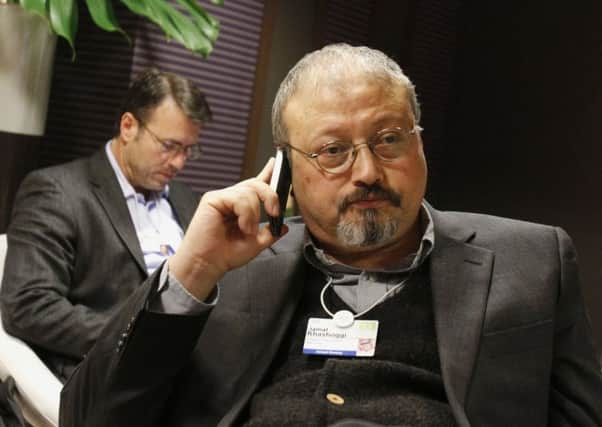Former top cop: It's becoming harder to get away with murder


The murder of Jamal Khashoggi was a slaying that went badly wrong. The clinical way it was executed suggests two things: that the men who carried it out were familiar with such violence and that they believed they could act with impunity, protected by their masters. On the face of it they had every expectation of getting away with it; one only has to glance at the recent history of the Middle East to see a sorry procession of political murder. In despotic countries with a puppet media and a tame judiciary, who is going to intervene?
But the Khashoggi murder was different. First, the victim was an internationally renowned journalist and the world’s media, incensed at the loss of one of their own, were never going to let it go. But there was another factor that makes this crime stand out: the trail of evidence the Saudi gang left behind.
Advertisement
Hide AdAdvertisement
Hide AdFew murders are planned, even badly; most are spontaneous eruptions of violence. But the murder of Khashoggi was planned over four days and lavishly resourced – a 15-man team is heavy by any standards. The intent was clear: to kill. They even brought a dodgy doppelgänger to assist their deception.
Yet for all the resources and malign intent of a powerful state, the operation was a comedy of errors. The gang behaved with all the arrogance of ignorance and accordingly were exposed by 21st-century digital forensics.
There is a golden rule in planning “special ops”: you spend a third of your planning time on the execution of the plan and two thirds on avoiding detection. Perhaps the Saudis missed that lecture but, for whatever reason, having committed their butchery they stumbled into what Donald Trump described as “the worst cover-up in history”– and it’s hard to argue. They arrived in groups on direct flights, in aircraft registered to their country, duly passed their luggage complete with murder kit through X-ray machines then trooped through the digital CCTV at the airport and again through the security system outside their chosen crime scene, their Istanbul consulate. Then, apparently unaware of the dangers of operating on foreign soil, of eavesdropping or signals intercepts, they carried out the killing in what was effectively electronic plain sight.
In contrast the Turks have played a blinder – holding all the cards, they have dribbled out damning information in a classic gambit, tripping the Saudis up in lie after lie.
It would be easy to dismiss this ineptitude as blundering by a low quality outfit, except that the highly rated Russian GRU who came to kill the Skripals, fell into exactly the same trap on their sightseeing trip to Salisbury.
There’s a view that the Saudis and Russian teams left a trail of digital evidence to show their contempt for the West. Don’t believe it, no one likes being caught – and killers like these have a lot to lose, including their heads.
It’s simpler than that, they were behind the digital forensics game and that should give us some small comfort. It’s getting harder and harder to get away with murder.
Tom Wood is a writer and former Deputy Chief Constable